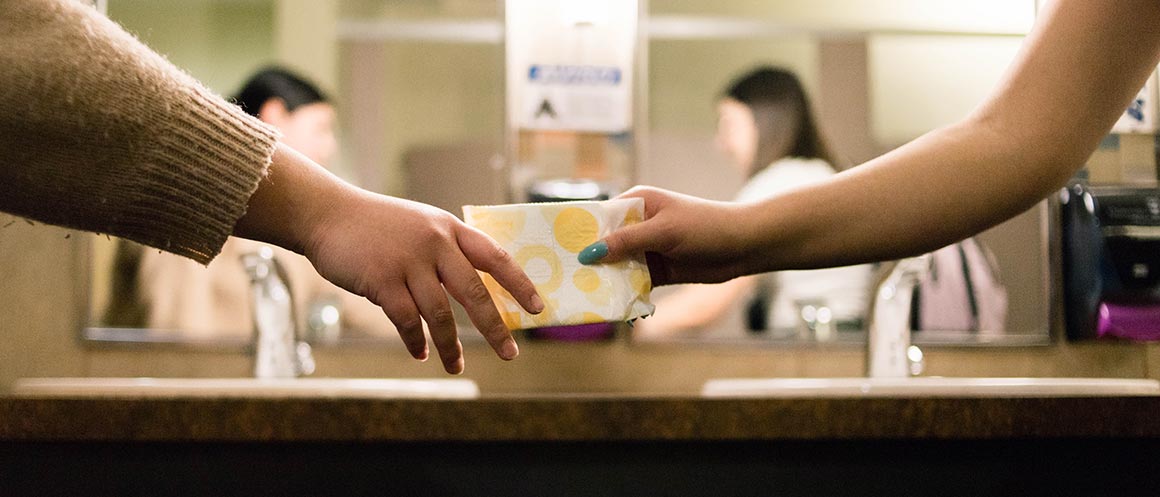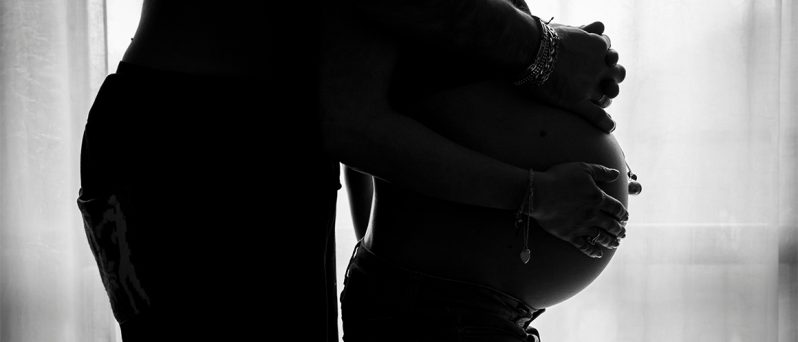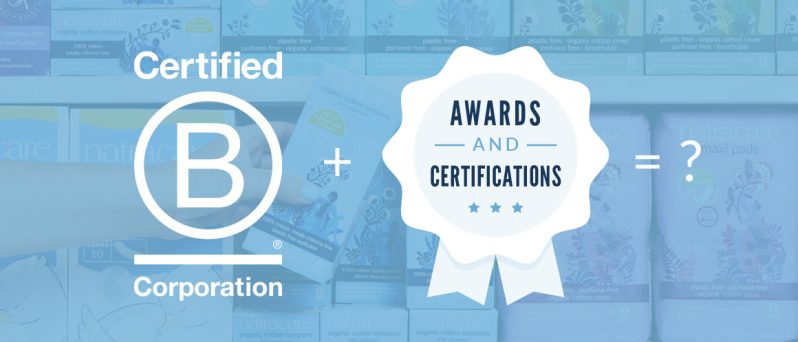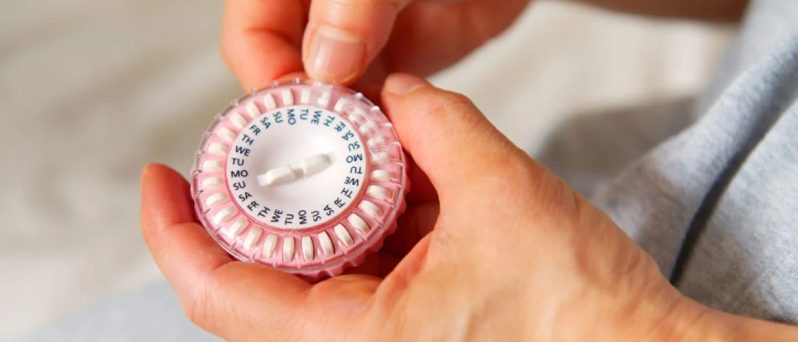Period poverty is a real problem that people face every month, both in the UK and across the globe. Living without affordable access to period products is a harsh reality, and one that is all too common for people who are homeless or living in insecure housing. On Black Friday 2019, we teamed up with SH:24 to spend, what is usually a day focused on impulsive consumerism, donating plastic free period products to people without affordable access. A few months later, we caught up with SH:24 to reflect on the campaign, here’s what they had to say:
Who is SH:24?
SH:24 is an innovative health tech company, working in partnership with the NHS to deliver online sexual and reproductive services across the UK. For people outside the regions where we’re commissioned by the NHS, SH:24 offers affordable testing and contraception via its sister service – Fettle.health.
Our services are quick, discreet, and completely confidential, making it easier for people to self-manage their sexual and reproductive health online, request oral and emergency contraception, and test for common sexually transmitted infections (STIs) like chlamydia, gonorrhoea, syphilis and HIV.
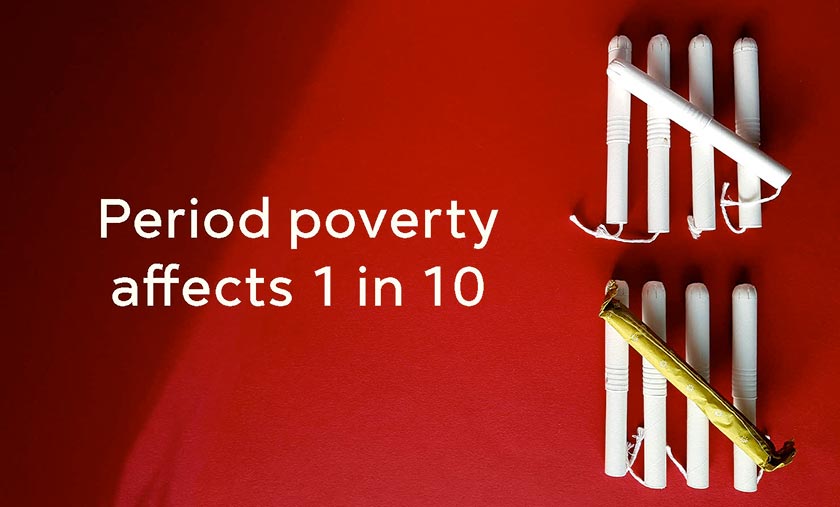
Why did you decide to tackle period poverty, especially for those without secure housing?
A significant proportion of our service users are people with periods and we often receive messages from people who are experiencing severe period pain, endometriosis, or heavy bleeding. We know how hard having a period can be. For homeless people though, it also means potentially not having access to washing facilities, or enough money to prioritise buying pads or tampons, so often going without. It means compromising comfort and bleeding without period products, so potentially facing judgement and increased stigma. We wanted to help people without secure housing to have better periods.
Why did you decide to run your period poverty campaign against the backdrop of Black Friday?
Leading up to Black Friday, we were bombarded with marketing emails from companies trying to secure extra sales. We found the contrast stark – so many homeless people going without access to even basic amenities, while companies ramp up the pressure on consumers to buy even more.
Comparing period poverty with Black Friday stats allowed us to raise awareness of just how skewed our global and national priorities have become in terms of universal access to goods and services.
What does period poverty mean in London? How does it affect the city?
In London, a large number of people are affected by homelessness and insecure housing, and although women account for only 13% of those sleeping rough, various reports (Homeless Link, AVA, St Mungo’s, Crisis and others) have highlighted how women’s homelessness is often hidden and under-reported.
This includes people who find a temporary solution by staying with family members or friends, living in squats or other insecure accommodation.
For those living in an already precarious situation, the higher cost of living in London means often being unable to afford period products. We see the effects of period poverty in reported incidences of shoplifting and see food banks springing up across the city, where period products are desperately needed and handed out every week.
Who are the charities tackling period poverty in London?
We worked with Pathway on this campaign, the UK’s leading homeless healthcare charity. Pathway were able to introduce us to a network of colleagues working in the homelessness sector across NHS trusts, with specialist GP services, refugee and asylum teams and other outreach organisations. St Mungo’s and Crisis also lead the way in providing homeless care and tackling period poverty, along with campaigns like Bloody Good Period.
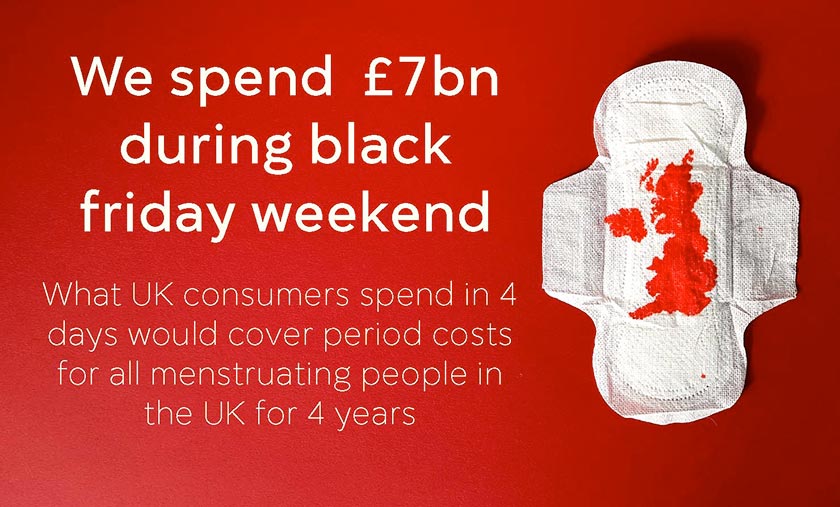
What are eco-friendly period products to you? Why do they matter?
Eco-friendly period products are made from sustainable or biodegradable materials and have been manufactured with minimal environmental impact. They matter because most period products on the market today are made of plastics which do not biodegrade for hundreds of years. In donating period products, it was crucial we donated products which did not add to the ongoing crisis of unethical consumerism and environmental degradation associated with most period products today.
Have a plastic free period
Natracare period products are plastic free, biodegradable, and compostable!
Find out more
How many period products were donated as a result of the campaign and how will they be distributed to those in need?
We donated 1,428 packets of Natracare’s organic cotton pads (that’s 17,136 pads!!) as a result of the campaign. They have since been distributed to a network of outreach organisations across London, including Guy’s and St Thomas’ Hospital, Solace Women’s Aid, Crisis, Groundswell and St Mungo’s. We paid for these products to be delivered by courier or met with representatives from each organisation, allowing us to meet those in need and see exactly who will be using Natracare’s products as a result of our campaign.
How can everyone help fight period poverty, particularly for the homeless?
We take for granted access to running water, clean clothes, and our period products. If you’re lucky enough to have these things in abundance, think about how you can help those who do not – by donating products to a local food bank or by directly volunteering with organisations who help them. Also, we can all talk more loudly about period poverty on social media, in our social circles, to friends, family and even petition governments to change legislation – recently, the tampon tax has been scrapped after years of campaigning by incredible activists.
You can read more about the connection between period poverty and sustainability in this blog post.
